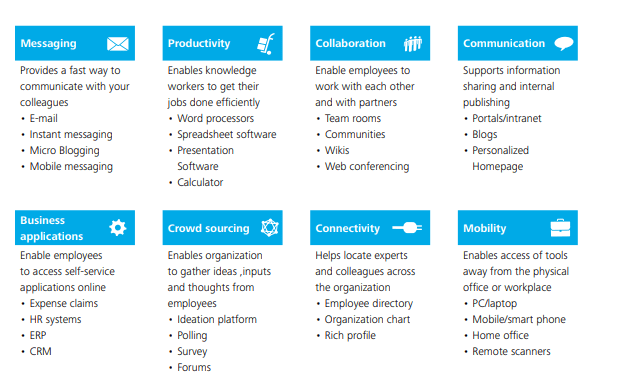
HR at the hub of driving Digital Employee Experience (DEX) in an evolving workplace
today2022.04.05. 2700 5


Farai Mugabe, Content & Research, The HR Congress
WHY SHOULD YOU CARE?
As a result of the pandemic, digital transformation was forced on companies and DEX became a critical part of the business strategy. In the new norm the vast majority of the employees are connected only digitally, therefore it is essential that organizations face the challenges with the right DEX strategy.
Disruption, change, and uncertainty best describe the new workplace. The global COVID 19 pandemic accelerated digital transformation forcing companies to adopt several digital tools to manage employees. Employee experience shifted towards Digital Employee Experience (DEX) as employees found themselves surrounded by computer apps and gadgets to manage their productivity, engagement, learning, on-boarding, and communication. In these times of change and transformation, HR found itself at the centre of change and transformation during such times.
So when COVID-19 came, employees found themselves swarmed with learning new technologies meant to make their working lives better. Some technologies we were not well prepared for them.
We were not prepared for digital transformation but COVID-19 forced it on us. The critical question around tech is, are our employees more productive with tech or without tech? Are our employees equipped with the right skills and capabilities to work using tech? Are baby boomers more comfortable with tech than generation Z? Are there any tangible benefits of tech to our particular organization or the benefits are just hypothetical?
What is Digital Employee Experience?
Digital employee experience (DEX) is defined as the quality of employees’ daily interactions with technology that they use to deliver work with the ultimate goal of driving a positive work environment. DEX is aligned with the business agenda of analysing different work processes, data and analytics, productivity tools, communication applications, HR portals, and learning management tools. 1
The workplace is no longer just a physical place where employees meet during office hours and go back home. Employees have become more digitally connected and collaborate digitally. There is now a very thin line between home and work as employee experiences are now clouded with digital connections.2
The digital workplace toolbox 2

Keys to succeeding in the “digital first” environment
The environment that we now operate in is now agile and highly competitive. To be able to beat the competition, companies need to move with speed and agility. Time to market for products has been greatly reduced. It is the role of HR to promote a culture of speed and excellence. A study by McKinsey and Company revealed that a product that gets six months late into the market, loses 33% of profit over five years. 3 The pace of development of products and innovation in global industries such as tech, banking, and motoring is at a breakneck speed. In a way to promote business speed and agility, businesses have gone digital. This means that HR should promote a culture of speed and excellence to ensure business success.
- Accept that disruption is the new way of doing work
Rightfully as the father of modern HR, professor Dave Ulrich indicates, the goal of HR is to win in the marketplace.4 In a world of disruption and accelerated change, HR should help the organization that the disruption is now the new way of doing work. For companies to be able to respond better, they should be able to be fluid and adapt to disruption at ease.
- Reskilling and up skilling
New technologies mean that new skills are being required. About two years ago in 2020, the World Economic Forum predicted that 50% of the global workforce require reskilling by 2025 as a way to adapt to the changes in technology and ways of doing work.5HR needs to develop career development plans, reskilling plans, and a holistic human resource development strategy that reskills and up-skills staff so they continuously adapt to the new digital world.
- Recruit the right talent
HR should help in promoting DEX by recruiting the right talent with the right capabilities that are necessary to help drive the business agenda. HR should help to attract and bring into the organization people who are capable of delivering business results.
- Induction and on-boarding
31% of employees quit within the first six months of their job. One of the reasons is failure to cope and understand the new work demands. This includes the technology involved in executing work. HR plays a role in managing staff turnover for new hires which is also known as the new hire survival rate by designing an induction and on-boarding program that walks through employees in the technologies that they use to do their work.
- Resigning roles and responsibilities
The workplace is changing and so are roles changing. Old roles are leaving the workplace and new roles are coming up. Examples of new roles include Chief Digital officer, Employee Digital Experience Manager, and Future of Work Manager. HR plays a pivotal role in redesigning jobs and the organizational structure. HR plays the role of the organization architect who designs roles and responsibilities in line with the new digital world.
COVID 19 forced digital transformation on companies. Research by Gartner indicates that almost 50% of employees will continue to work remotely post COVID 19.6The workplace continues to go more and more digital making employees’ digital natives. These employees will be connected through digital platforms hence making DEX a critical part of the business strategy. Take a good close look in the mirror: Is your HR ready to rise for the challenge?
…
References:
1Digital Employee Experience (DEX), by Marc Moesse
https://www.techopedia.com/definition/34744/digital-employee-experience-dex
2The digital workplace: Think, share, do: Transform your employee experience, by Fredico Herrera, Gilbert Chan, Michel Legault, Raheemah Mohammad Kassim and Vikas Sharma
https://www2.deloitte.com/content/dam/Deloitte/mx/Documents/human-capital/The_digital_workplace.pdf
3The top trends in tech, by McKinsey Digital, McKinsey and Company
4RISE! How HR can Lead the Organization Through the current humanitarian crisis, by HR Congress
5These are the top 10 job skills of tomorrow- and how long it takes to learn them, by Kate Whiting, World Economic Forum
6Prepare for the Future of Remote Work: 4 key impacts remote work will have on the workplace by Gartner, Garterhttps://www.gartner.com/en/human-resources/trends/remote-work-revolution
Written by: Mihaly Nagy
Digital Employee Experience HR Strategy HR Tech
Previous post

- 2133
labelArticles today2022.04.05.
Work is Now a Team Sport
By David C Forman, bestselling author “Fearless Talent Choices” WHY SHOULD YOU CARE? “Not finance. Not strategy. Not technology. It is teamwork that remains the ultimate competitive advantage , both [...]
Similar posts

labelArticles today2024.10.21.
The success-recipe to build agile and future-ready organizations in 2025 and beyond







Post comments (0)